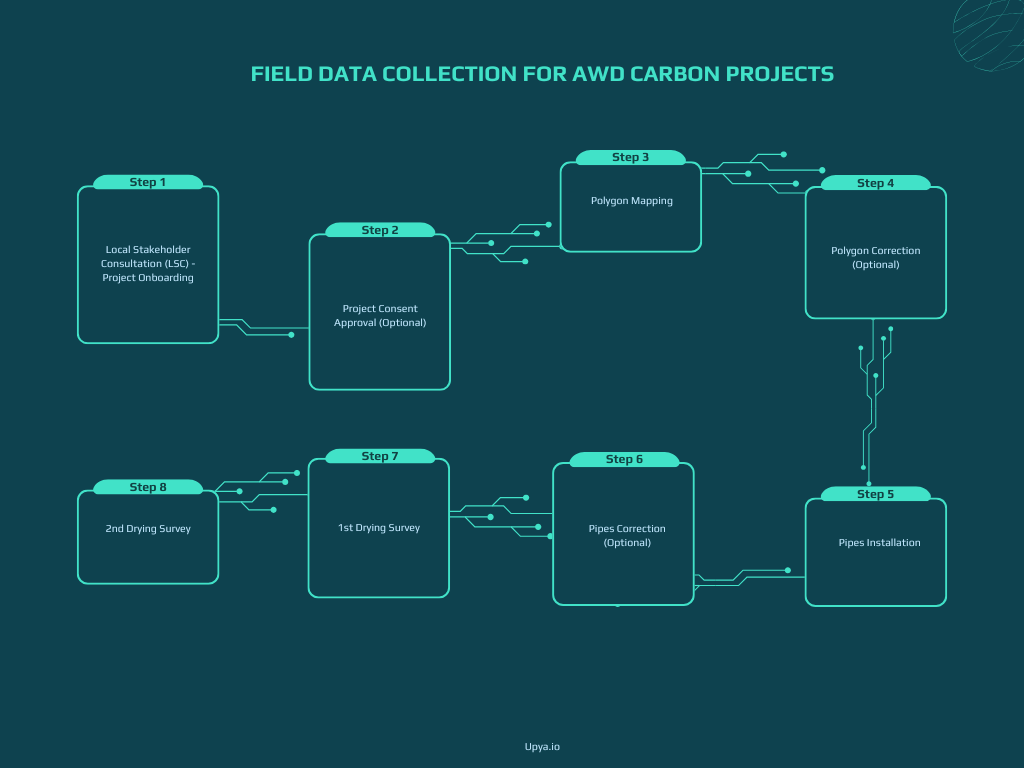For the carbon market, the credibility and value of a project depend on transparent, traceable, and verifiable field data.
High-integrity carbon credits require rigorous data collection protocols at the field level.This is because these processes ensure emission reductions are real, additional and measurable. Every stage of the project must align with rules set by certification standards such as Gold Standard, Verra, Plan Vivo, and Cercarbono.
As a result, each ton of CO₂ reduced or avoided is robustly verified. However, as discussed in a recent blog post, the field stage remains one of the most complex and demanding.
Therefore, well-structured data processes are essential for building trust with credit buyers. In addition, they secure third-party verification and help projects achieve higher market value.
Introducing the Upya Store for Carbon Credits
With this in mind, Upya has launched the Upya Store for Carbon Credits — a platform equipped with methodology toolkits. Each toolkit contains the necessary forms for organized and structured field data collection, covering any carbon project methodology.
Each toolkit contains ready-to-use forms tailored to specific carbon project methodologies, arranged in a logical sequence that mirrors data collection phases and stages. This structure enables seamless digital dMRV and streamlines collaboration between field staff working offline and administrators managing operations remotely.
Inside the Upya Store, you can select the toolkit that fits your project:
- Safe Drinking Water (Household Water Systems & Community Water Systems)
- Enhanced Rock Weathering (ERW)
- Alternate Wetting and Drying (AWD)
- Energy, Clean Cooking, and Improved Cookstove Projects
- Forestry, Agriculture, and Mangrove Projects
Zooming in on the process for AWD projects
For Alternate Wetting and Drying (AWD) projects, the toolkit structures field data collection around the beneficiary and their land as the core reference points.
Each plot, its irrigation setup, and all drying events are systematically linked to the beneficiary. As a result, this creates traceable, well-organized records for every stage of the project. For example, all events are logged chronologically to maintain consistency. The figure below outlines the steps:

Whether you are in design, implementation, or monitoring, the Upya Store helps ensure your project meets certification standards while operating efficiently in real-world field conditions.
Start your project today: Launch with Upya Store
Book a 1:1 with our team: Schedule a Call
